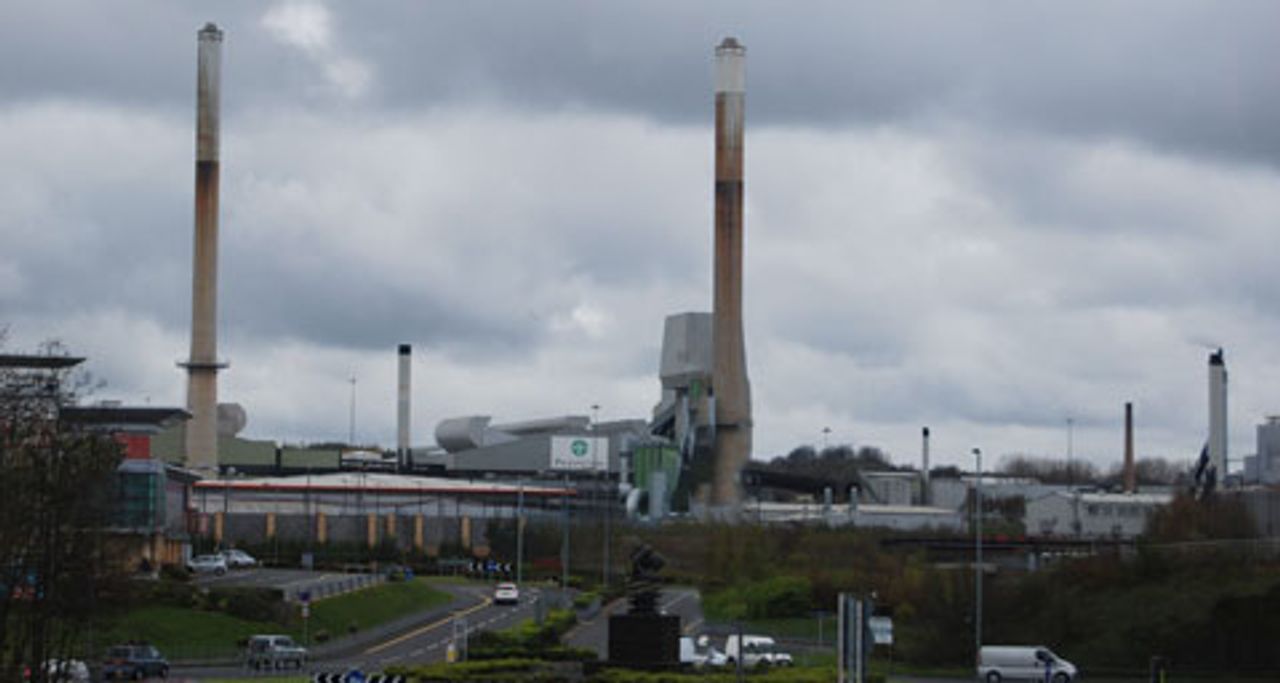St Helens is situated in the North West of England, 11 miles (18 km) from Liverpool and 23miles (37 km) from the centre of Manchester. The town has a population of just over 100,000.
Its birth came about through the Industrial Revolution. Its traditional industries were glassmaking, mining and chemicals, with some textile factories. Mining in St Helens dates back to 1540, and at its height the town produced a million tons of coal a year.
 Danny Dickinson
Danny Dickinson The defeat of the miners by the Conservative Thatcher government in the 1984-1985 strike, aided by the betrayal of the trade unions, including the National Union of Mineworkers, brought about the closure of the remaining pits in St Helens. The last two pits closed in 1991.
The Latin motto on the town’s coat of arms means, “Out of the earth comes light.” But there is not much light around. Of its traditional industries, only glass-making remains, and that has been drastically reduced over the past 30 years.
At their peaks, coal mining and glass manufacture together employed around 50,000 workers in St Helens (well over half the workforce). Between 1978 and 1995, more than 20,000 of these jobs were lost, with most going in the early 1980s. By 2000, employment in the core glass sector had fallen to just over 2,000 jobs.
The main glass manufacturer Pilkingtons, founded in St Helens in 1826, was sold to the Japanese company Nippon Sheet Glass in 2006. The company’s massive plants at one time spread across the town, employing the majority of the firm’s 20,000 workers in the UK. The company now employs just 1,000 in St Helens.
 The Pilkington plant in St Helens
The Pilkington plant in St HelensOn a visit to Pilkingtons last December, Deputy Prime Minister Nick Clegg cynically remarked, “We can’t carry on in the North West hoping that we are going to get more handouts from Whitehall to create jobs that are here today, gone tomorrow. We need private sector jobs in factories like this, which last for years.”
The plant announced 150 redundancies in February. The majority of the job losses will be young workers recently taken on in what the company described as an “upsurge” in business.
Unemployment in St Helens stands now at more than 6,800, the highest rate in 15 years. The rate for 16-to-24-year-olds is 14.4 percent, much higher than the national average of 8.4 percent.
The Department of Work and Pensions has announced that more than 1,400 people from St Helens have been placed onto the Work Programme—where the unemployed work for their benefits. A recent report by the Wellbeing Trust warned that the lack of employment was having a detrimental effect on the mental health of young people in St Helens.
A 2009 “Core Strategy” report by St Helens Council found that “Multiple Deprivation” levels in the town “are amongst the highest in the country. St. Helens is ranked as the 47th most deprived authority out of 354 authorities in England.” Some St Helens wards, including Town Centre, have amongst the worst levels of poverty in the UK. The report states, “In particular there is a cluster of Super Output Areas (SOAs) falling within the 5% most deprived nationally in the Town Centre, Parr, Thatto Heath and Bold Wards with other pockets of high deprivation in Windle and Newton.”
These poverty levels have not improved since a report on Multiple Deprivation produced in 2000 found “The most severe deprivation [in the top 3 percent nationally] is formed in a corridor which runs south from the Town Centre ward to Bold ward.”
In its latest report, Share, a local government partner, found the Town Centre ward, with a population of 8,293, has the highest unemployment rate in St Helens. Nearly 50 percent of households do not own a car, and the life expectancy is the lowest in the 16 wards.
These appalling levels of poverty will worsen as St Helens Council forces through £50 million in austerity cuts, slashing jobs and vitally needed services. The Labour group that controls the council is quick to blame the Conservative-Liberal Democrat government for cuts in funding. But while it sheds crocodile tears, it does nothing to oppose the cuts. Already, 600 jobs have gone in the public sector, including 90 from the local college.
This year’s budget means further cuts to the workforce, as well as a 2 percent rise in council tax.
The town hall is busy producing reports and brochures to entice investment. This will be based on offering up cheap labour in part-time or agency working schemes.
In the late 1960s, I worked at Pilkingtons’ Fibreglass plant in St Helens. The rejected glass from other plants was spun at the factory to make insulation rolls and boards for the construction industry. I knew firsthand how important the glass industry was to the St Helens population, so many members of families worked there.
To make a living wage, even then, you had to do double shifts. Tiredness was a major factor in accidents, especially in the plate glass plants. My job was on the packing line, where the fibreglass sheets shot down the belt into a roller system that threw loose shards of the fibreglass into your face. Uncured molten resin would also get onto your skin. You had to supply your own work clothes. You were given cheap safety glasses, but the gloves provided to catch the fibre rolls came in one size. If your hands were not standard size, you went without. At the end of your shift, your hands would be covered in tiny cuts that had become covered by fibres.
A major strike took place in 1970, the first since the General Strike of 1926, when workers at the Cowley plant walked out over short payments. Within an hour, most of the plants had joined them. The poor pay and bad conditions escalated the original dispute into a demand for higher wages and better conditions. The General Municipal and Boilermakers Union (GMB) was tied hand and foot to the company. The shop stewards ran through each factory floor, pleading with workers not to join the strike.
Out of the historical distrust of the union and its opposition to the strike, a rank-and-file committee was formed. A leadership was elected at a mass meeting, and within days, the workers would only listen to them. The Manchester playwright Jim Allen wrote Rank and File as a play for BBC TV, which was based on the dispute.
Recounting the time he was in the company of workers from the float glass plant, Allen told the World Socialist Web Site how they asked him to write a play about their conditions. He replied he didn’t have the time. An older worker asked him come into the toilet, “I want to show you my campaign medals”. When they got there, the worker lifted his shirt to show deep scars across his chest, arms, and back.
Allen wrote the play, and it was directed by Ken Loach.
Today, workers in the town face far worse conditions, including mass unemployment and poverty.
Fill out the form to be contacted by someone from the WSWS in your area about getting involved.
